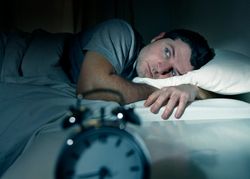How a Polysomnogram Can Help Your Sleep Problem

If you are someone who has insomnia or wakes up frequently at night, know you are not alone. Sleep problems affect approximately 40 million Americans in a given year, however, much fewer ever seek treatment. Because sleep is so important both for your physical and mental health, consider talking to a sleep specialist. Among the treatment tools they have at their disposal is the polysomnogram, also known as a PSG test. Here’s a quick explanation of this test and why it’s used.
A Guide to Polysomnogram Tests
It's Better Known as a Sleep Study
You may have heard about polysomnogram tests by their nickname, sleep studies. Patients reporting sleep problems spend the night at a medical facility being observed by doctors and technicians. This can help identify whatever is causing your nightly disturbances, be it sleepwalking or a condition less identifiable to the untrained eye.
It Monitors Your Vitals
 During a polysomnogram, sleep specialists will hook you up to monitors that will display and record your brain activity, blood oxygenation, and pulse, among others. This can also help the doctors form a diagnosis. For example, if you have narcolepsy, a condition which causes uncontrollable sleepiness throughout the day, your polysomnogram may show that you went directly into REM sleep, instead of first passing through the other necessary sleep cycles.
During a polysomnogram, sleep specialists will hook you up to monitors that will display and record your brain activity, blood oxygenation, and pulse, among others. This can also help the doctors form a diagnosis. For example, if you have narcolepsy, a condition which causes uncontrollable sleepiness throughout the day, your polysomnogram may show that you went directly into REM sleep, instead of first passing through the other necessary sleep cycles.
You Should Consider It For These Reasons
In addition to the sleep conditions mentioned above, polysomnography can help detect sleep apnea—a problem where you stop breathing at various points throughout the night—periodic limb movement disorder—which causes you to flex and unflex your legs during your sleep—among others. If you suffer from any kind of chronic sleep problem, consider this test. Not only may it allow you stop a serious medical condition before it can become worse, but a better night’s sleep can help your focus, improve your mood, and even prompt weight loss.
Residents of Flathead County, MT, struggling to get a good night's sleep should reach out to the sleep specialists at Glacier Headache & Sleep Medicine. Their experts treat all kinds of sleep problems, and have conducted over 10,000 sleep studies since the practice's inception in 1995. Visit the office's website to learn more about how the Montana sleep specialists can help you hit the pillow with greater relaxation and ease, or call the team directly at (406) 752-1729.
About the Business
Have a question? Ask the experts!
Send your question

